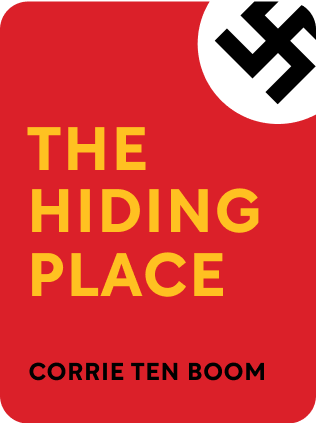

This article is an excerpt from the Shortform summary of "The Hiding Place" by Corrie ten Boom. Shortform has the world's best summaries of books you should be reading.
Like this article? Sign up for a free trial here .
What changed after the German invasion of the Netherlands? What was life like under German occupation of Holland?
Read more about the German invasion of the Netherlands in 1940 and the subsequent changes that came to Holland during WW2.
German Invasion of the Netherlands
On May 10, 1940, there was a German invasion of the Netherlands, making the country’s worst fears of war and occupation a reality. Although Dutch forces initially put up a stiff resistance, they were no match for the superior military might of the combined German Army and Air Force. Having seen the devastation of the German blitzkrieg tactics in Poland in September 1939, the Dutch government made the decision to surrender and submit to German occupation four days after the invasion, on May 14, 1940. Queen Wilhelmina of the Netherlands left the country shortly after to form a government-in-exile in London.
The pace of the German invasion of the Netherlands came as a sudden and violent shock to people all over the country. Although the frightening specter of war had haunted the minds of nearly all Europeans ever since Hitler’s rise to power in Germany in 1933, it was still a stunning turn of events—not least for the pious ten Boom family.
The night of the German invasion of the Netherlands, Corrie had a terrible nightmare, one that she later came to see as a prophecy. In it, she and her family were in the Grote Markt, the central market square in their home city of Haarlem. It was always a joyous and bustling place for Corrie, filled with beautiful medieval architecture, commerce, and familiar and friendly faces. But in her dream, the Grote Markt was pitch black, silent, a grim and desolate place. She and her family were being carried through the square on a cart, driven by four black horses. She did not know where they were being taken.
(Shortform note: The four horses may be a reference to the Four Horsemen of the Apocalypse, described in the New Testament’s Book of Revelation. In some interpretations, the Four Horsemen bring the Apocalypse before the Final Judgement and Second Coming of Christ. As a devout Christian, these are images and ideas with which Corrie ten Boom would likely have been familiar.)
What Changed For Holland During WW2?
At first, after the German invasion of the Netherlands, life in Haarlem carried on as it always had. The German occupation of Holland meant the presence of German soldiers on the streets. That was unusual, but something one quickly became used to. As The Netherlands had been placed under a civil, rather than a military, occupation, much of the basic day-to-day administration of the city was carried on by Dutch officials, including the local police force. But things would soon take a terrifying turn for the worse.
The German Occupation of Holland
Disturbing changes began to present themselves. German uniforms and insignia became a common feature of ordinary life on the streets of Haarlem. Although business boomed at the watch shop initially (the influx of soldiers with good wages and disposable income stimulated economic demand), it came at a terrible price. Things escalated after the German invasion of the Netherlands and subsequent German occupation of Holland.
Racist and antisemitic propaganda began to be published in once-respectable newspapers, now under the control of the Reich Ministry of Propaganda. “News,” as Corrie had known it, was no more. Life also began to get stricter and more regulated, with less freedom of movement. The occupying authorities issued ration cards, which stipulated how much food each household was to be allotted. All residents were issued identity cards, which had to be produced any time a German official demanded to see them—and there would be severe consequences for anyone caught without one.
The Germans also restricted information—what people were allowed to read, watch, or listen to. Early in the occupation, the Germans ordered that all privately owned radios were to be handed over, lest the population hear broadcasts from Allied nations. The ten Boom family, like many other people living in occupied countries, relied upon broadcasts from the BBC in London for real news about the war. Without it, German lies and propaganda would be their only sources of information about the outside world. Thus, the ten Booms chose to defy the confiscation order in Holland during WW2.
Accordingly, when the German requisition officer visited the Beje to ask if the family had a radio or other contraband materials, Corrie lied and told him that they didn’t. This was one of the first moral conflicts of the war she faced. Corrie knew that lying was a sin, expressly forbidden by the Ten Commandments. But she also knew that the confiscation order was unjust and that she would be compromising another part of her and her family’s moral code to comply with it. She knew that her only way to survive was to put her life into God’s hands and trust in His will. By lying to the requisition officer, Corrie had taken her first steps toward resistance. She was to take many more.

———End of Preview———
Like what you just read? Read the rest of the world's best summary of Corrie ten Boom's "The Hiding Place" at Shortform .
Here's what you'll find in our full The Hiding Place summary :
- Why devout Christian Corrie ten Boom decided to stand up to the Nazi occupation
- How ten Boom and the Jewish neighbors she was hiding were caught
- How ten Boom survived the concentration camp and left with even stronger faith






